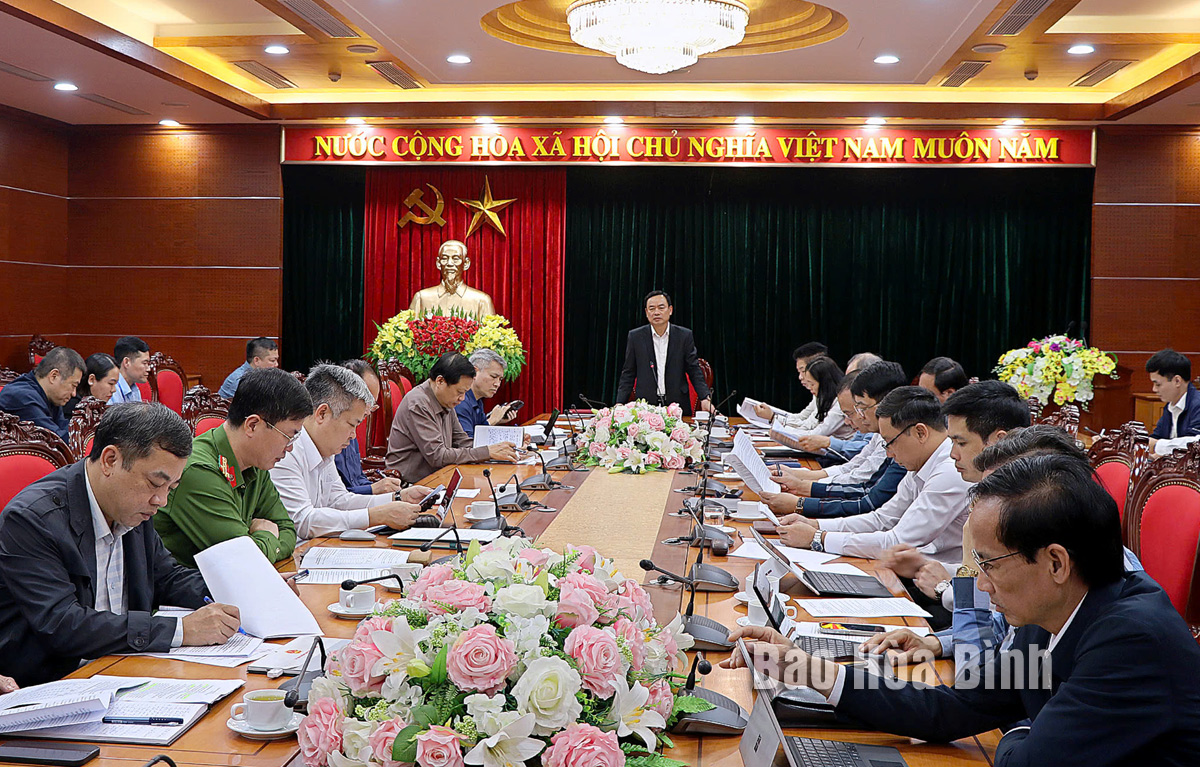



Vice Chairman of the provincial People’s Committee Quach Tat Liem speaks at the meeting.
As of 28 February, the province's total budget revenue had surpassed 1.91 trillion VND (approximately 77.6 million USD), reaching 27% of the annual target set by the provincial People’s Council. Domestic revenue accounted for 1.83 trillion VND (74.4 million USD), while revenue from import-export activities totalled 80 billion VND (3.2 million USD).
The province’s total revenue surged 161% year on year, primarily due to increased land use fees, which exceeded 1 trillion VND (40.6 million USD), 36.7% of the yearly target.
However, some localities faced challenges in collecting land use fees, particularly through land auctions. Many planned auctions failed due to a lack of bidders, partly because of a sluggish real estate market. Additionally, delays in land clearance and auction procedures hindered revenue collection.
At the meeting, officials discussed tax collection measures and strategies to address these challenges. They urged the provincial Department of Agriculture and Environment to work with tax authorities to review land lease projects and finalise rental agreements. To prevent delayed payments, authorities also called for a stricter assessment of investors’ financial capacity before approving land auctions.
Vice Chairman of the provincial People's Committee Quach Tat Liem stressed the need to accelerate tax and fee collection, particularly in the mining sector. He also directed agencies to focus on key land projects with high revenue potential and establish detailed revenue schedules. The province will actively address obstacles and ensure smooth implementation.
No success is easy, especially for a mountainous province like Hoa Binh, which still faces many difficulties. In the process of economic restructuring, the locality encounters various challenges, ranging from weak infrastructure, ineffective investment attraction, to barriers in awareness. However, it has taken effective solutions to overcome obstacles hindering economic development.